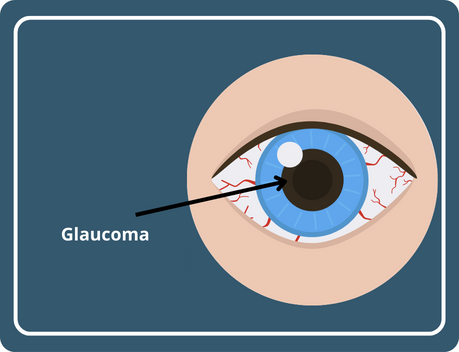Glaucoma Surgery: A Visionary Solution
Glaucoma, often referred to as the “silent thief of sight,” is a group of eye conditions that can lead to irreversible vision loss if left untreated. However, there’s hope on the horizon in the form of glaucoma surgery. In this comprehensive guide, we will explore the world of glaucoma surgery, its various types, and how it offers a visionary solution to preserving eyesight.
What is Glaucoma?

Glaucoma is a complex eye condition characterized by increased intraocular pressure (IOP) that can damage the optic nerve over time. It’s essential to demystify the causes, symptoms, and risks associated with this condition to understand why glaucoma surgery becomes a crucial consideration.
Types of Glaucoma Surgery
Glaucoma surgery is not a one-size-fits-all solution. In this section, we’ll embark on a journey to explore various glaucoma surgery options. From traditional trabeculectomy to the newer, minimally invasive glaucoma surgery (MIGS) techniques, each approach offers unique benefits and considerations.
Who Needs Glaucoma Surgery?
Not everyone with glaucoma requires surgery, but some individuals benefit significantly from it. In this section, we’ll delve into the criteria and considerations for identifying candidates who may benefit from glaucoma surgery. Understanding when surgery is the right path is crucial for preserving vision.
Glaucoma Surgery Process
we’ll provide a detailed walkthrough of the glaucoma surgery process. From the initial consultation and pre-operative preparations to the surgical procedure itself and the critical post-operative care, you’ll gain a comprehensive understanding of what to expect on your journey to preserving vision.
Recovery and Aftercare
Successful glaucoma surgery isn’t complete without a proper recovery and aftercare plan. In this section, we’ll guide you through the critical post-operative period, covering topics such as managing discomfort, recognizing potential complications, and the importance of scheduled follow-up appointments.
Risks and Benefits
Understanding the risks and benefits of glaucoma surgery is crucial for informed decision-making. In this section, we’ll delve into the potential risks and complications associated with the procedure, as well as the significant benefits it offers, such as preserving vision and improving your overall quality of life.
FAQs related to glaucoma surgery:
Q: What is glaucoma surgery, and why is it necessary?
A: Glaucoma surgery is a medical procedure performed to lower intraocular pressure (IOP) and prevent further optic nerve damage. It is necessary to preserve vision in individuals with glaucoma who haven’t responded to other treatments.
Q: Who is a suitable candidate for glaucoma surgery?
A: Suitable candidates for glaucoma surgery are typically individuals with elevated IOP or advanced glaucoma, despite medication and other treatments. Your eye specialist will determine if you’re a candidate.
Q: What are the common types of glaucoma surgery?
A: Common types of glaucoma surgery include trabeculectomy, glaucoma drainage devices (GDDs), and minimally invasive glaucoma surgery (MIGS) procedures like trabecular bypass and shunts.
Q: Is glaucoma surgery painful?
A: Glaucoma surgery is usually performed under anesthesia, so you won’t feel pain during the procedure. Some discomfort or mild pain may be experienced during the recovery period.
Q: What are the potential risks and complications of glaucoma surgery?
A: Risks and complications may include infection, bleeding, vision changes, and in rare cases, failure to adequately lower IOP. Your eye specialist will discuss these risks with you.
Q: How long does it take to recover from glaucoma surgery?
A: Recovery time varies depending on the type of surgery. It may take several weeks to months to fully recover. Follow your eye specialist’s post-operative instructions for the best outcome.
Q: Can vision be restored after glaucoma surgery?
A: While glaucoma surgery can prevent further vision loss, it may not always improve existing vision loss. Early diagnosis and treatment increase the likelihood of preserving vision.
Q: Are there alternatives to glaucoma surgery?
A: Yes, alternatives include prescription eye drops, oral medications, laser therapy, and lifestyle changes. Surgery is typically considered when other treatments aren’t effective.
Q: How can I prepare for glaucoma surgery?
A: Preparation involves discussing your medical history, current medications, and any allergies with your eye specialist. You may need to temporarily discontinue certain medications before surgery.
Q: What should I expect during a glaucoma surgery consultation?
A: During the consultation, your eye specialist will assess your eye health, discuss your treatment options, and explain the risks and benefits of surgery. It’s an opportunity to ask questions and make an informed decision.
Conclusion
In conclusion, glaucoma surgery emerges as a visionary solution for preserving your precious eyesight. By understanding the condition, the surgical options available, and the recovery process, you can embark on a journey towards regaining clarity and improving your quality of life through glaucoma surgery.




